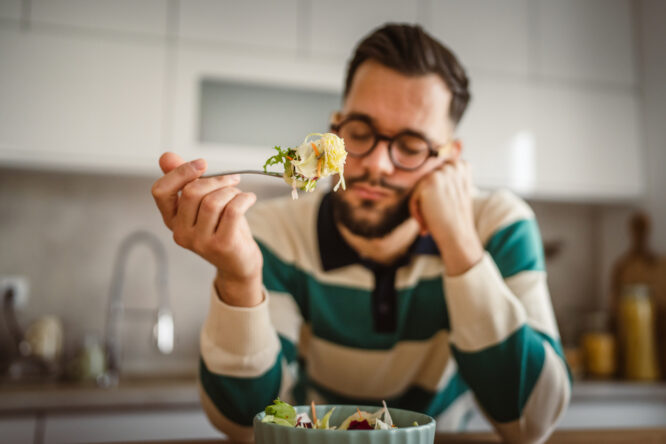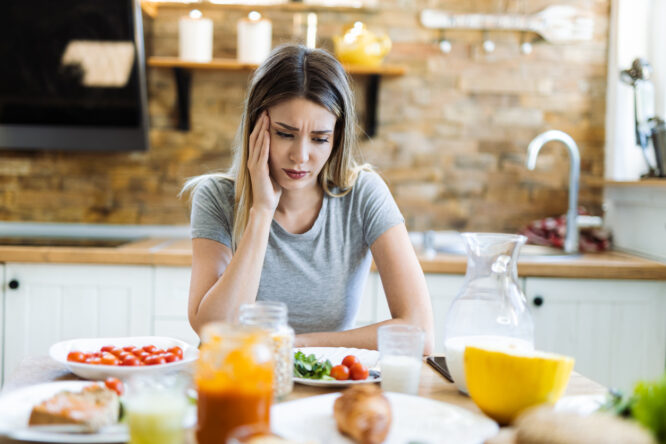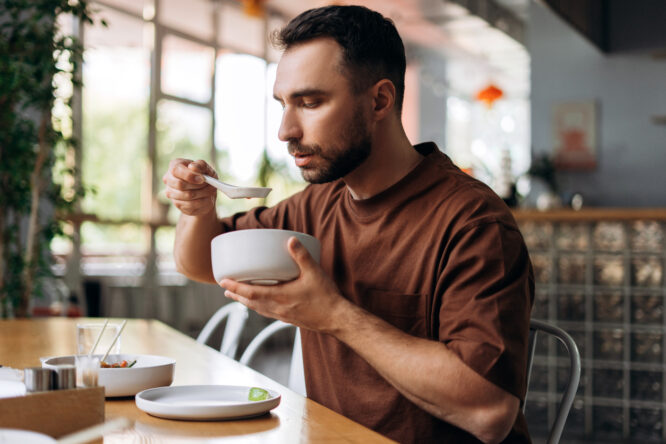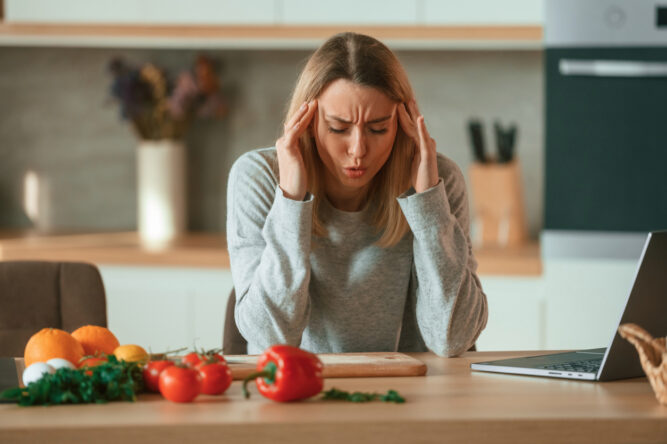When you’re depressed, even the most basic tasks like eating a meal can seem impossible.

It’s not about willpower. It’s about how heavy everything feels, including meals. Cooking, deciding, even chewing can be a lot. But your body still needs fuel, and small wins matter. Here are 10 simple tips to make eating feel more doable when you’re deep in that fog. After all, your body still needs sustenance.
1. Stick to what’s familiar and easy.

This isn’t the time for new recipes or complicated meal prep. Go for foods that require minimal thought and already feel safe—toast, cereal, fruit, instant noodles, a sandwich you’ve made a hundred times before. When motivation is low, familiarity reduces the friction. There’s comfort in knowing exactly what to expect, and even something simple can still count as nourishment. The goal isn’t to eat “perfectly”; it’s to eat something.
2. Lower the bar—on purpose.

If “making dinner” feels impossible, aim smaller. Heat up a ready meal. Eat peanut butter straight from the spoon. Pour milk over dry cereal. What matters is that you’re getting calories in, even if it doesn’t look like a traditional meal.You don’t need to feel guilty for not cooking. You’re surviving. That counts. Give yourself permission to redefine what “eating well” means when your mental health is struggling.
3. Keep grab-and-go snacks within reach.

Having snacks that don’t require prep—like bananas, granola bars, mixed nuts, cheese sticks, or even crackers—makes it easier to eat something without needing energy to prepare it. Stash them in visible places: your desk, your bag, next to your bed. Sometimes the easier it is to reach for something, the more likely you are to follow through, even if your appetite is all over the place.
4. Focus on texture and temperature if taste feels off.

Depression can blunt your senses, including taste. If nothing sounds appealing, try thinking in terms of how food feels instead. Do you want something warm and soft? Cold and crunchy? Smooth and easy to swallow? Sometimes that sensory shift makes eating feel less overwhelming. It can also give you a small sense of control—choosing based on how something feels rather than forcing yourself to “eat what’s good for you.”
5. Use reminders if you’re forgetting to eat.

Time can get weird during a depressive episode, and meals often slip through the cracks. Setting reminders or alarms—even vague ones like “Have you eaten today?”—can help break through that fog. You’re not nagging yourself here. Instead, it’s a way of giving your future self a nudge that says, “Hey, food matters too.” You deserve to feel cared for, even if that care has to come from your phone for now.
6. Make food decisions in advance.

When energy is low, the act of choosing can feel like a mountain. If possible, pre-decide what you’ll eat that day, or write down a few go-to meals you don’t have to think about. Even jotting down “toast, soup, pasta” on a sticky note helps reduce decision fatigue. That way, when your brain is at its heaviest, the plan’s already there. It’s one less thing to wrestle with.
7. Break meals into smaller parts.

If a full plate feels overwhelming, split it up. Have part of a meal now and finish the rest later. Eat in stages: a piece of fruit now, crackers later, something warm before bed. This takes the pressure off “finishing” and focuses more on just getting something into your system. Even if it takes all day to eat a full meal’s worth of food, that still counts.
8. Eat while doing something low-pressure.

Pairing food with a gentle distraction, like watching a comforting show, scrolling your phone, or listening to music—can make the act feel less intense. It softens the spotlight on the food itself. You’re not trying to distract from nourishment—you’re creating a context that feels manageable. This can help reduce the sense of dread or disconnection that sometimes comes with eating during a low period.
9. Let someone else help if you can.

If a friend or family member offers to bring food or prep something for you, let them. Or ask them to order something on your behalf. Delegating the task, even just deciding what to eat, can take a load off. You don’t have to do all of this alone. Letting other people support you isn’t a sign of weakness; it’s a way to keep functioning when your resources are depleted. People who care often want to help in tangible ways.
10. Remind yourself that eating is an act of care.
 Source: Unsplash
Source: Unsplash It’s easy to see food as one more thing you’re failing at when you’re already down. But reframing it as an act of kindness—something that says, “I still deserve to feel okay”—can change how you approach it. You don’t have to enjoy it or feel hungry for it to matter. Even one small meal is proof that some part of you still wants to look after yourself. And that’s enough to build on.




